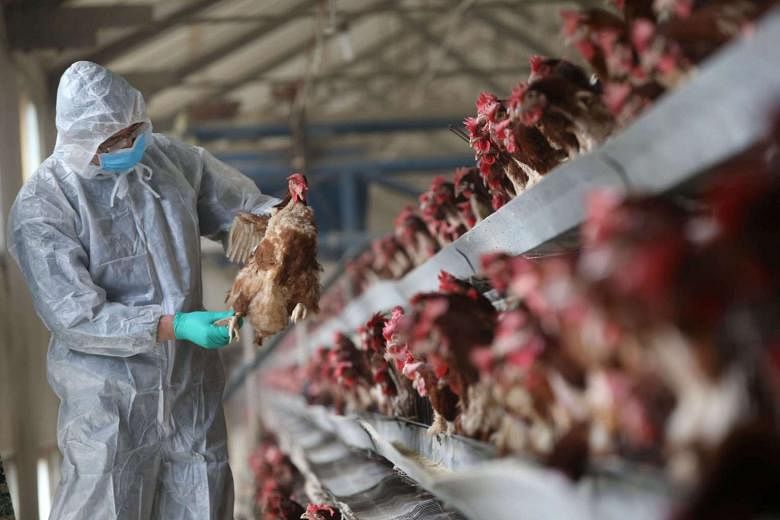BEIJING • With many poultry markets closed in the wake of China's worst bird flu outbreak, local egg producers are being forced to shell out to feed and water chickens long after they would normally have been killed and sold for meat.
That is piling pressure on farmers already grappling with tanking demand from a spooked public, deepening what some say is one of the biggest crises to hit the industry in China, the world's top supplier.
Mr Zhang Dong, who has 10,000 laying hens in Hubei province, said: "You want to sell your chickens, but you can't. You have no choice but to keep raising them and watch losses accumulate every day."
Chinese companies that churn out eggs for commercial sale typically sell hens at live poultry markets after 400 to 500 days of laying, when they begin to produce less regularly.
But regional authorities have shut poultry markets and restricted the transportation of birds as they fight the spread of the H7N9 virus, which has killed about 100 people since October - nearly three times more deaths than during China's last major bird flu outbreak in 2013.
The public is worried, although nearly all deaths have been among people who had direct contact with chickens. There is no evidence that the virus can be caught from eating uncooked meat and eggs or that it can spread easily between humans.
Unlike many other strains, hens with H7N9 are difficult to identify as they show few or no symptoms.
The additional time that farmers must spend looking after birds beyond their prime will drag further on egg prices, which hit seven-year lows this week, below four yuan (82 Singapore cents) a kilogram.
Mr Feng Cheng, a 31-year-old farmer in the southern province of Anhui, is paying to feed 30,000 chickens that are past their prime and losing value, while sinking egg prices have halved his income since late last month.
China's egg industry is dominated by small family-run businesses with little leeway for enduring hard times.
"Eggs prices are falling sharply. Prices of feed materials like soya bean meal and corn are still rising. Life is so tough," Mr Feng said.
In an assessment of current market conditions, based on an egg price of 4.4 yuan a kilogram and feed costs of 2.3 yuan a kilogram, farmers would lose 32.5 yuan over the lifetime of every hen, the government has said.
REUTERS

